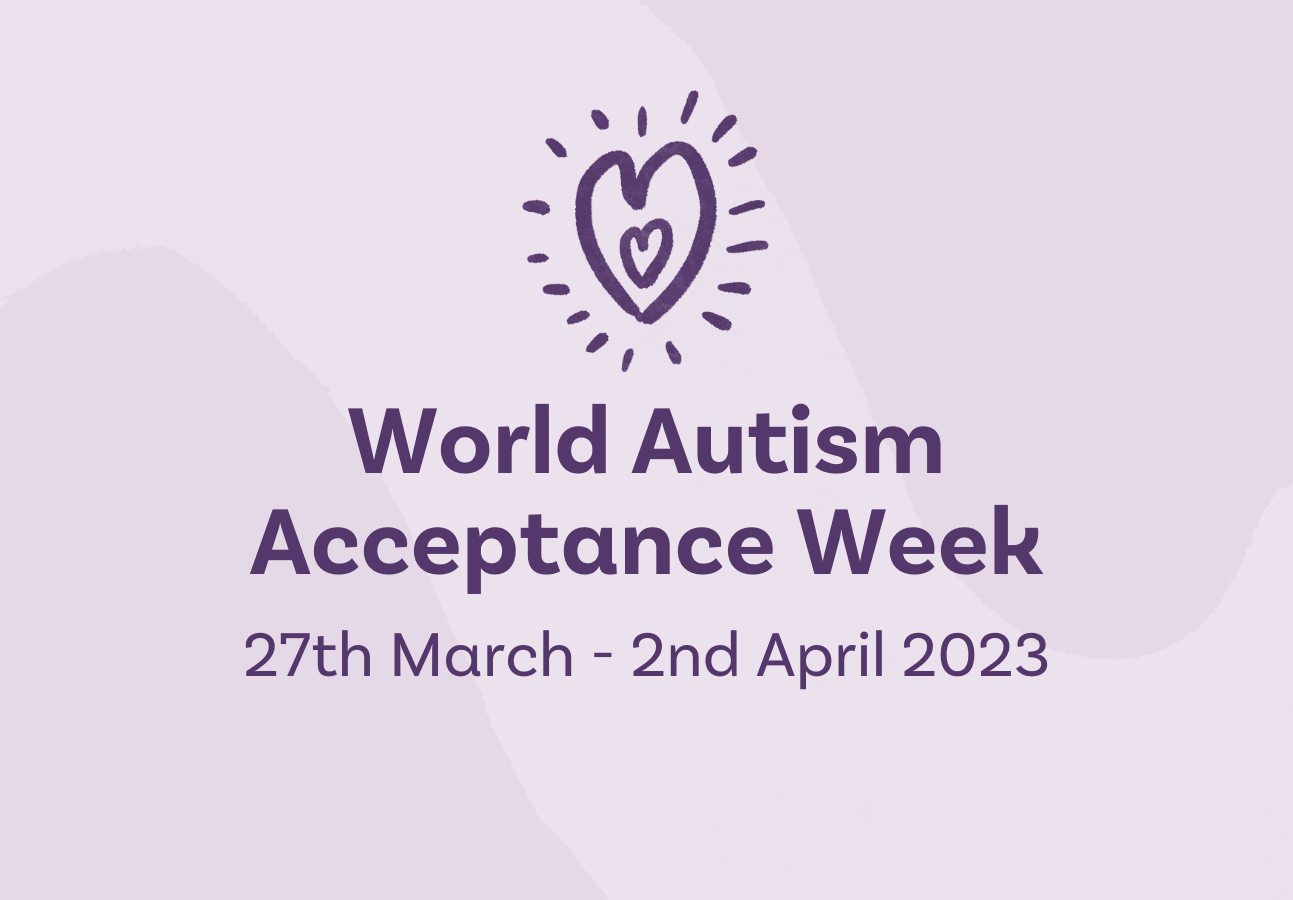
This week is World Autism Acceptance Week, including World Autism Awareness day on Sunday 2nd April. We want to raise awareness of what autism is, and what someone with autism may experience.
What is Autism?
Autism is a spectrum condition and it can affect people differently, and the support needed by each person with autism may vary. We all have our strengths and weaknesses, that’s part of being human!
Let’s take a look at what someone with autism may experience:
- Social communication and interaction – taking things literally, needing more time to process information, seeking alone time when in large groups of people, difficulty ‘reading’ other people.
- Repetitive and restrictive behaviour – preferring to have routines and feeling distressed by a change of routine, repetitive movements such as rocking.
- Over or under-sensitivity to light, sound, taste or touch – finding background noise such as music or people talking in a restaurant unbearably loud or difficult to ignore. Sensory overload can be caused by environments that feel overwhelming to someone, such as schools, workplaces and shops.
- Highly focused interests or hobbies – autistic people can become experts in their interests, and these can change over time or be lifelong.
- Anxiety – anxiety can be a common difficulty for autistic people, and can sometimes caused by social situations and change.
Someone with autism may become overwhelmed in a situation, which can be a very exhausting experience for the person. This can cause a temporary loss of behavioural control, or may appear more passively, such as going quiet or ‘switching off’.
It’s also important to recognise how autism may appear differently in women.
It’s important to us at Everyturn that our culture is inclusive as an organisation, so that everyone feels comfortable and confident being themselves. We value different perspectives, experiences and skills.
As part of the practical support that we offer, we have various diversity network groups across Everyturn, including our neurodiversity support group. Within this group, we have many neurodiverse colleagues and allies who share their lived experiences and promote the value of neuro-difference! The members of this group provide a great support system to each other, while also highlighting ways we can improve our inclusivity even further.
Neurodiversity is a term which describes the different ways that our brains work. Neurodiversity can include:
- Autism
- ADHD
- Dyslexia
- Dyscalculia
- Dyspraxia
- And many more!
Neuro differences are important, as different ways of thinking and perceiving offer us all opportunities to learn, and help us create a society that works for everyone.
To learn more about autism and World Autism Acceptance Week, visit:
https://www.autism.org.uk/get-involved/raise-money/world-autism-acceptance-week-2023